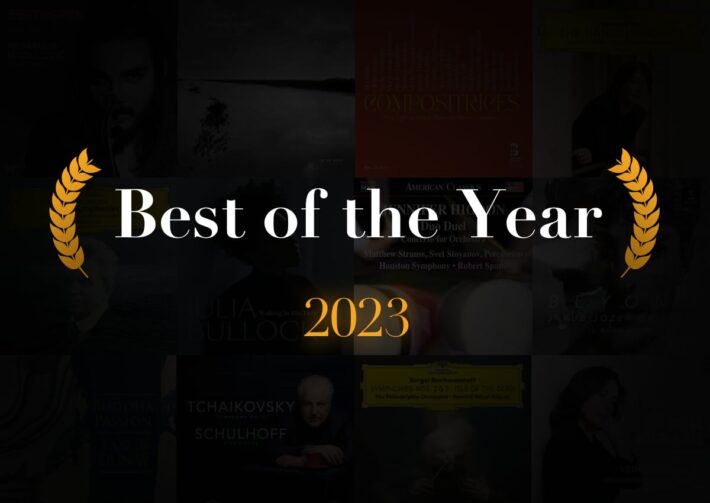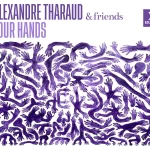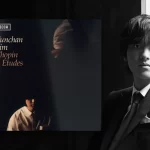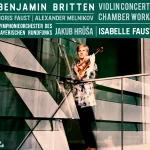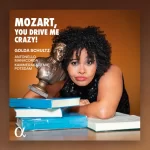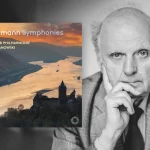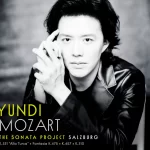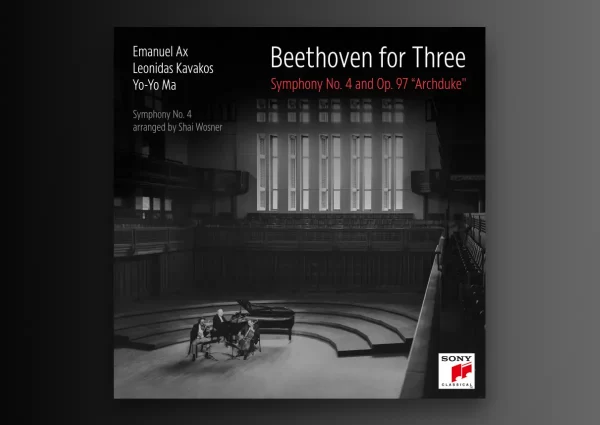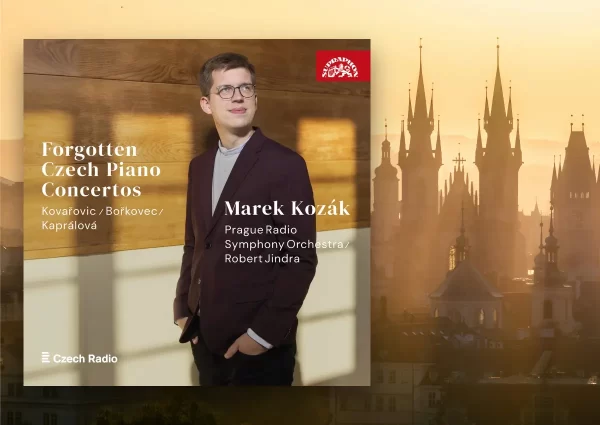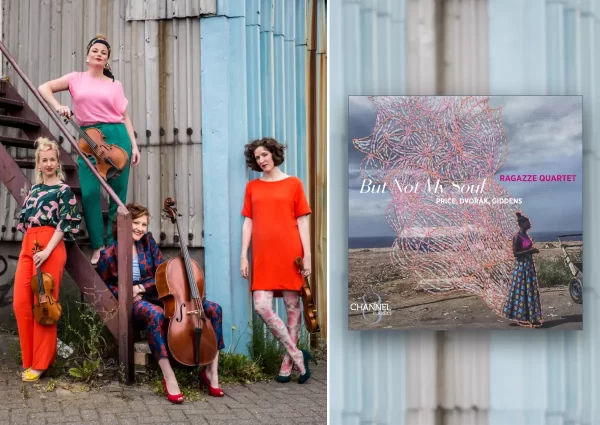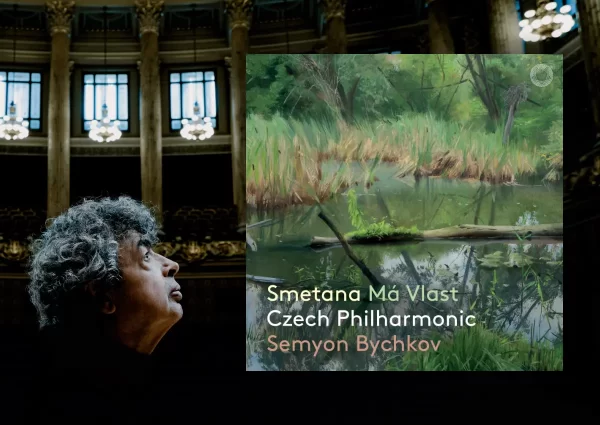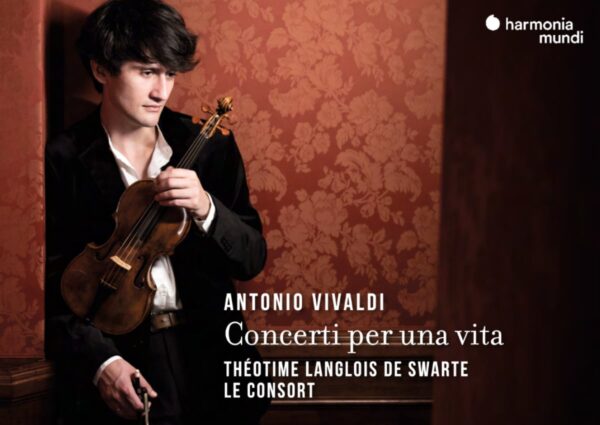We go over a lot of classical music albums every week, so when 2023 comes to an end it’s time for members of The Classic Review staff to pick their favorite albums of the year. And so, a moment before we start providing you with fresh new content for 2024, here are the albums that our staff members most liked in 2023.
Carl Nielsen – The Symphonies – Danish National Symphony Orchestra, Luisi
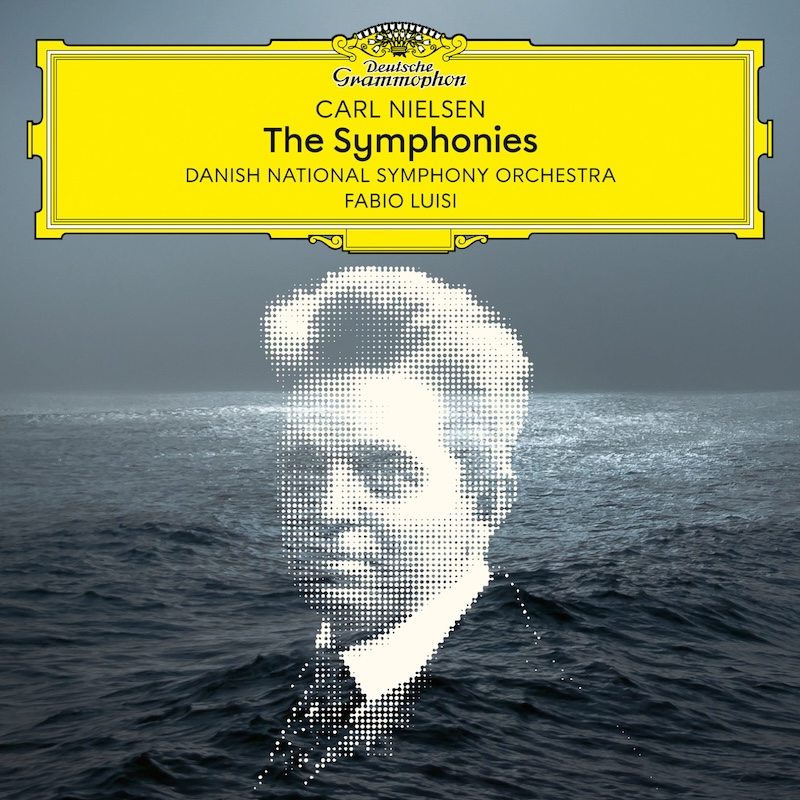
There are a few excellent cycles of Nielsen’s symphonic canon played by this orchestra, but none that more fully capture the fiery, brusque, and quixotic nature of this composer. There is compelling empathy between conductor and orchestra: Luisi’s new discovery and love of these works has drawn a greater level of ardency and enjoyment from his players. Characterization is vivid and dramatic, surely a reflection of Luisi’s opera experience, and some tempos are daringly slow. Yet the playing has such rapt concentration it never feels slow, and one finds deeper layers of angst and struggle, which then makes the victorious optimism of the final movements more affecting. The eccentric sixth is particularly impressive because Luisi and his players fully embrace its weirdness, making no effort to make it conform to more normal parameters, and in so doing becomes more communicative and emotional. Sound is fine, a tad congested, and cannot match the BIS recordings with the Royal Stockholm Philharmonic Orchestra under Oramo. Yet these readings have an incandescence and authority that demand to be heard. — David McConnell, Tal Agam
Jennifer Higdon – Duo Duel, Concerto for Orchestra – Houston Symphony, Spano
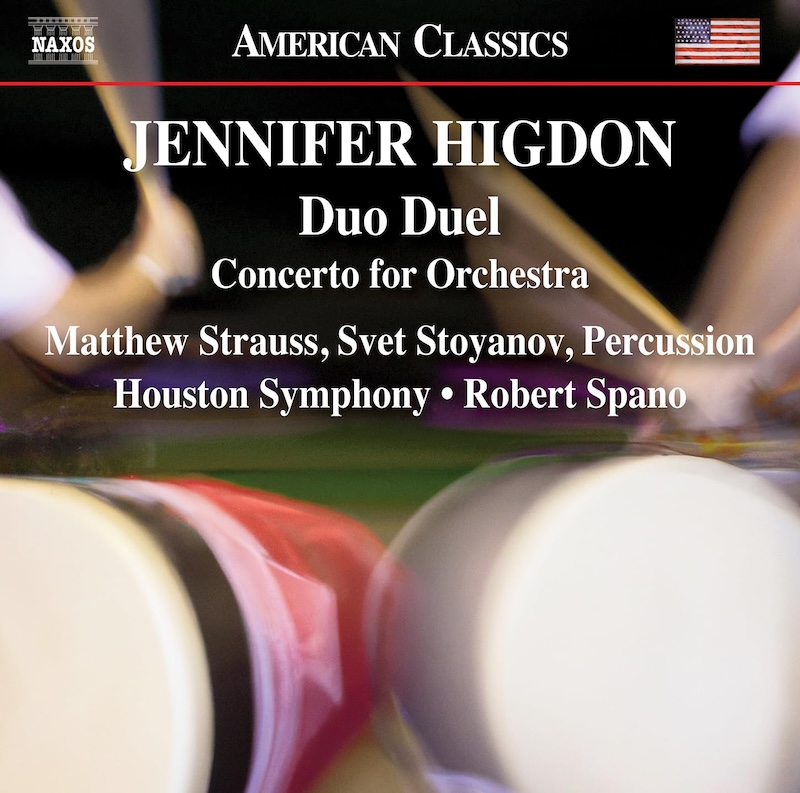
Jennifer Higdon’s works have been featured on a remarkable 70 albums, but this release captures two especially exciting ones —“Duo Duel” and the “Concerto for Orchestra”—band in top-notch form.
On the first round of what was to become several listens, I recall being transfixed as I listened to Duo Duel and to percussionists Svet Stoyanov and Matthew Strauss: they take full technical and artistic command of what is clearly a demanding work. I was struck by their skillful navigation of conflict and synchronicity, the two elements that Higdon so successfully channels to create an encompassing and often suspenseful soundscape.
Robert Spano and the Houston Symphony shine in the Concerto for Orchestra with their unfailing energy and enthusiasm. Higdon’s compositional prowess is evident in just how creatively she can orchestrate. We’re treated to a wealth of pitched and non-pitched instruments that contribute to a listening experience filled with colorful chaos.
The skillful layering and integration of even the most divergent textures across both pieces are only emphasized by these masterful performances. The only thing I wish? That more contemporary music albums like this will be made. — Azusa Ueno
Rachmaninoff – Symphonies 2 & 3 – Philadelphia Orchestra, Nézet-Séguin
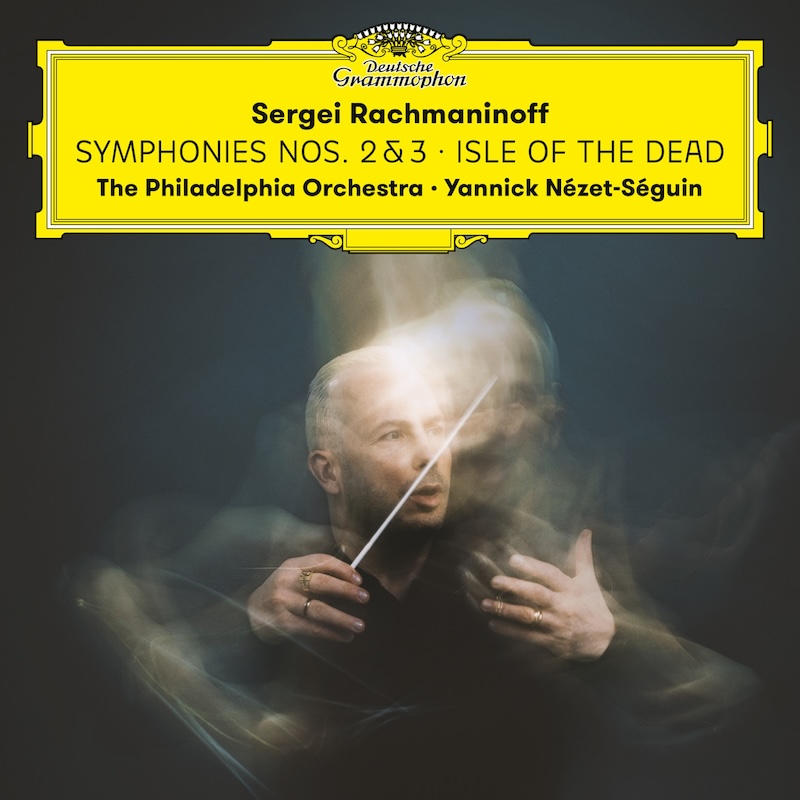
The relationship between this orchestra and Rachmaninoff is rather special; many of us first learned these symphonies through the Philadelphia/Ormandy recordings. Yet those recordings show their age, and with the advent of the digital age I waited for a new Philadelphia cycle. Decca recorded one in the 1990s led by Dutoit that was disappointing both sonically and interpretatively. This recording completes what is one of the most distinguished cycles in recent years, featuring not only the symphonies and some of the tone poems, but the works for piano and orchestra featuring the brilliant Daniel Trifonov – one hopes DG will release a box set soon.
DG’s engineers beautifully capture that famous Philadelphia string sound, and the gorgeous clarinet solo in the slow movement of the second (played by principal clarinet Ricardo Morales) is but one instance of the distinguished and sophisticated wind playing throughout the album. The chemistry between the orchestra and its young conductor is palpable and adds another layer of intensity to the performances.
— David McConnell
Clavichord – András Schiff
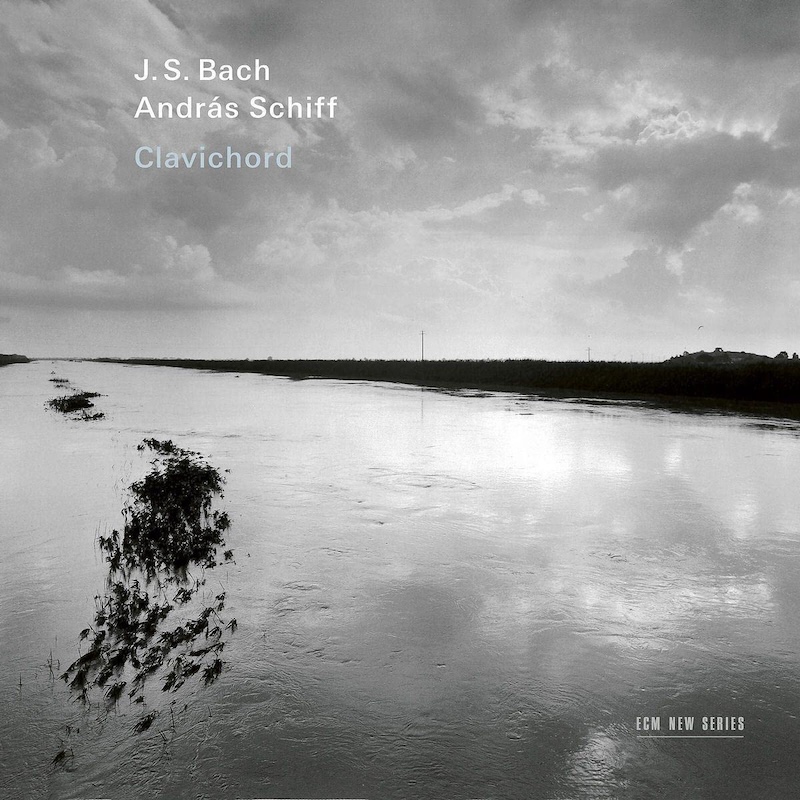
András Schiff’s return to Bach’s repertoire, this time exploring the expressive capabilities of the clavichord, unveils a mesmerizing sonic journey. Supported by ECM’s exceptional recording quality, Schiff’s rendition on the Specken clavichord from 1743, crafted by Boris Potvlieghe, breathes new life into familiar works. The lion’s share of the album is dedicated to Bach’s pedagogue pieces, the 2-part inventions and 3-part Sinfonias, where Schiff’s nuanced interpretation transforms them into some of Bach’s most emotive keyboard compositions.
While some pieces, like the C minor Invention and G minor Sinfonia, evoke Schiff’s previous piano recordings, others take on a renewed brilliance. The clavichord’s unique features, such as subtle dynamic changes and delicate vibrato, shine in Schiff’s hands. A few compositions may feel more at home on a harpsichord, yet Schiff’s mastery reveals the clavichord’s potential. This convincing recital, coupled with ECM’s stellar engineering, marks a standout addition to the clavichord repertoire.
— Tal Agam
Compositrices – Bru Zane
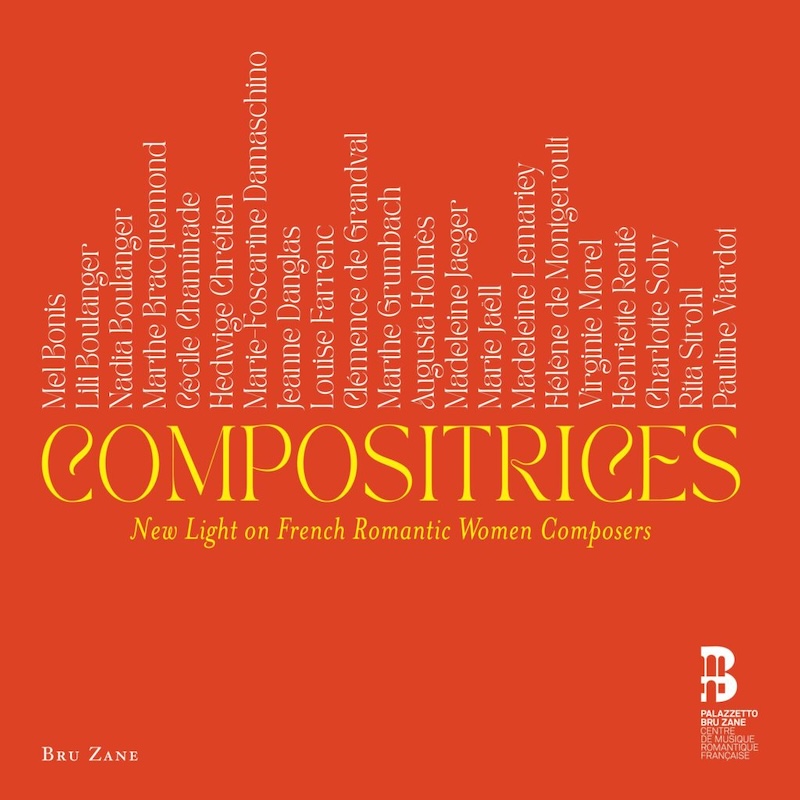
Eight CDs, offering over 165 works written by 21 French women composers. Many of these are premiere recordings and four composers have never been recorded. And what an abundance of riches on offer: alongside a few familiar works, like Cécile Chaminade’s lovely “Flute Concertino” and Lil Boulanger’s “D’un matin de printemps” (in its original scoring for violin and piano) there are works by Charlotte Sohy, Marie Jaëll and Mel Bonis, all mostly new to most listeners.
The set embraces just about every genre, including solo sonatas, songs, chamber, and orchestral works, a vast majority of it substantial, meaningful, and deeply emotional. All of it has one thing in common: it was not performed, it was not printed, it was not studied, because of the composer’s gender. The various performers bring true commitment to, and love for, this music, and the recording quality is consistently good across several different dates and venues.
As noted in the original review, readers can readily find dissenting voices who argue this music is not worthy of being recorded – that history has already passed judgement on the music’s worthiness. That is a disingenuous argument that no longer matters – all of us now have the chance to make our own decisions about this music. Spend the money and simply listen. We have no doubt you will be thankful that you did. — David A. McConnell, Tal Agam
The Handel Project – Seong-Jin Cho, Piano
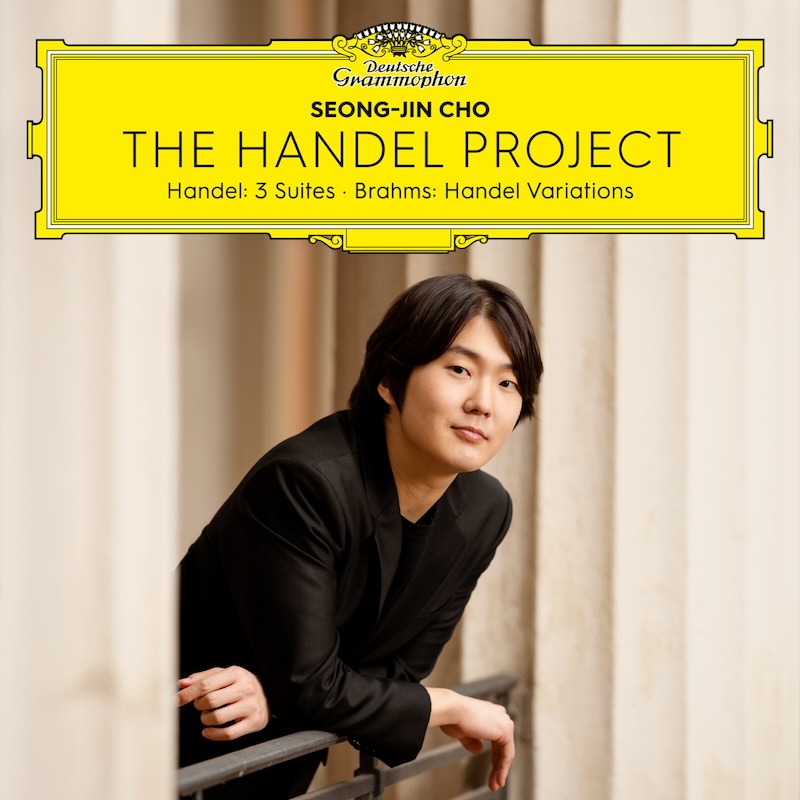
Seong-Jin Cho’s illuminating Handel project unfolds with a masterful exploration of the often-overlooked harpsichord works, showcasing the Baroque composer’s versatility on the modern piano. The Brahms’ variations are a worthy bonus, but not since Murray Perahia’s Handel album did we hear such a dedicated and loving account of these suites. — Tal Agam
Beyond – Jakub Józef Orliński, Countertenor

What I’ve really appreciated about Orliński’s music across his 4 albums is that the programs are not curated simply for the sake of enjoyment. Of course, there are well-known works (beautifully sung, of course) but what might be even more captivating are the world premieres that he so often features. Credit on this front is due to consistent collaborator and musicologist Yannis François.
A colleague of mine had commented on the evolution of the countertenor’s voice from his earlier releases and this trend has definitely continued into Beyond. I noticed that he has a number of sound profiles at his disposal, ranging from supple to resonant—but it is on this album especially that he shows just how effortlessly he can make switches to align with the characters within each work.
I would say that Orliński is a conscientious singer when it comes to how carefully and delicately he shapes each phrase—but don’t take that to mean that he sounds cautious or measured. Giulio Caccini’s famed madrigal, Amarilli, for instance, is full of expressive fluidity.
Orliński and his collaborators have done important work for the vocal Baroque music genre, and I hope that the creative and vibrant curations continue in future releases. — Azusa Ueno
Tchaikovsky – Symphony No. 5 – Pittsburgh Symphony Orchestra, Manfred Honeck
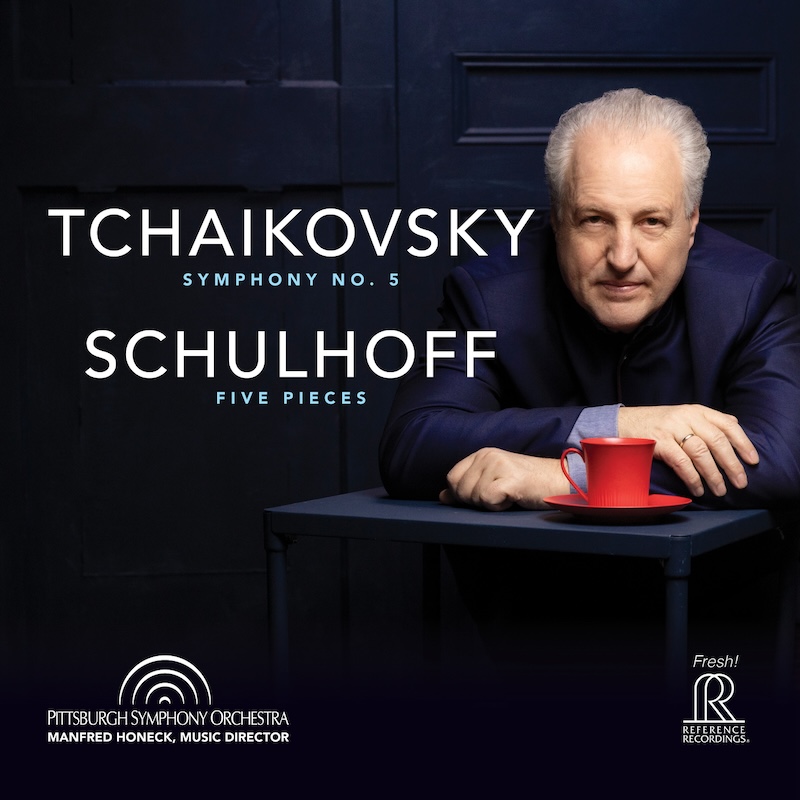
This orchestra has probably played this symphony dozens of times, and yet under Honeck they as if possessed, in a performance that sounds spontaneous yet superbly controlled, rhapsodic yet technically precise. Honeck’s reading is romantic in the best sense of the word – fiery and tender, those gorgeous melodies played with absolute assurance and passion. His notes on the music and its interpretation are, as always, thoughtful and engaging.
The symphony would be reason enough to buy this recording, but the companion work, an orchestration of Erwin Schulhoff’s ‘Five Pieces for String Quartet’ by Honeck and Tomás Ille, makes the album even more desirable. In their original guise these short character pieces are playful and intimate, but the new orchestrations (for a large Romantic orchestra) find a darker, more menacing strain, relating it to the works of Mahler, Schrecker, and Zemlinsky. The playing, in both the symphony and Five Pieces, has a white-hot intensity and the Reference recording is stunning in its depth, warmth and clarity.
— David McConnell
Poulenc – La Voix Humaine, Sinfonietta – Veronique Gens, Soprano
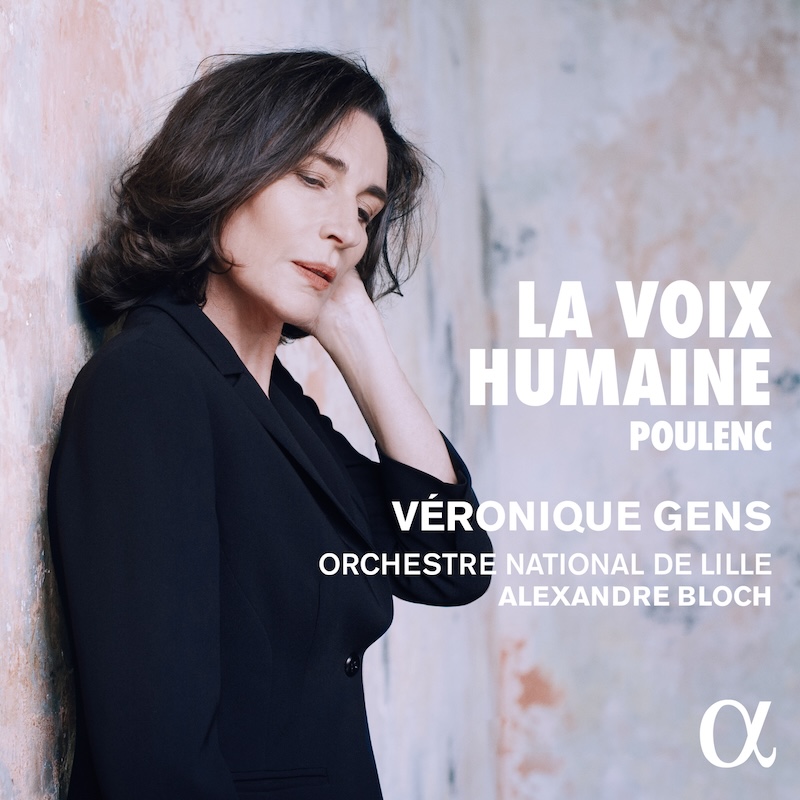
In this captivating rendition of Francis Poulenc’s one-act opera, “La Voix Humaine,” soprano Véronique Gens delivers an exemplary performance, navigating the emotional tumult of Jean Cocteau’s text with finesse. Gens seamlessly embodies the character’s lyrical and dramatic shifts, from tender moments to frenzied outbursts, showcasing her vocal versatility. The Orchestre National De Lille, led by Alexandre Bloch, provides impeccable support, demonstrating a delicate balance in Poulenc’s intricate orchestration. Though other sopranos have tackled this demanding piece, Gens’ interpretation now stands among the best. — Tal Agam
Beethoven – Violin Concerto – Nemanja Radulović, Violin
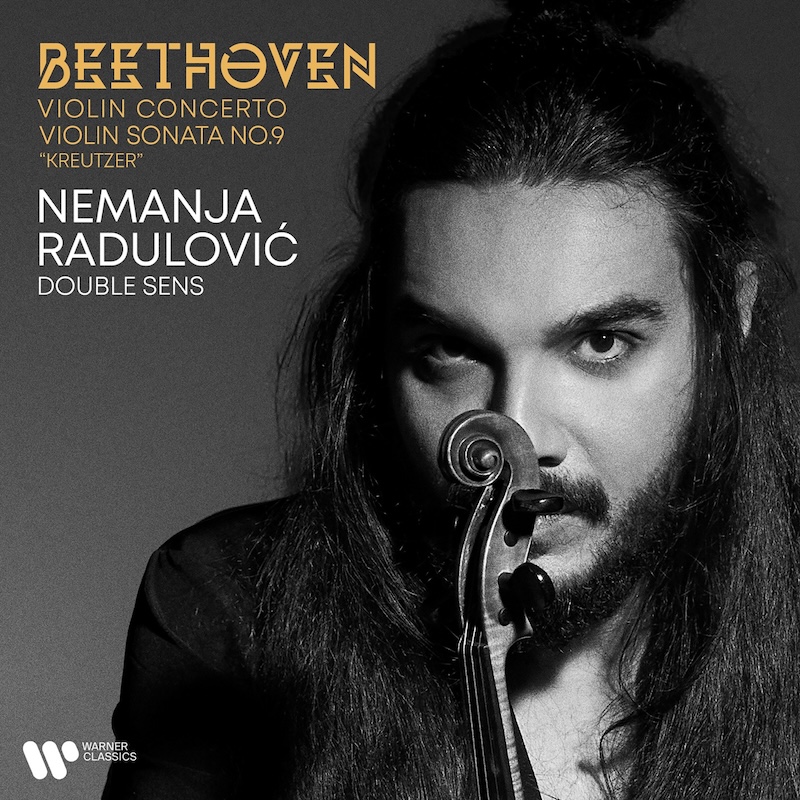
We’ve been big fans of Radulović for his enthusiasm in introducing listeners to a wider world of music, as his release like Roots (2022) attests to. Even a “classical” music album like BAÏKA (2018) has a cultural theme and attention placed on less commonly gems like Khachaturian’s concerto.
One wondered if Radulović could take his distinctive personality and conviction into more standard repertoire. That he offers a chamber arrangement of Beethoven’s ”Kreutzer” Sonata already speaks to an innovative angle. The performance itself is stellar, too: the opening double stops that are so difficult to get right are pristine and seamless. He has quite the talent for understanding the pianistic timbres of the original and translating them into vibrant orchestral colors.
The centerpiece Violin Concerto showcases the level of nuance in his dynamics and bow control. Some moments are at an anticipatory whisper while others command attention with power. Above all, he plays with a freedom that makes clear how much he enjoys creating the music.
Double Sens is a splendid and reliable chamber ensemble that’s capable of matching up the soloist’s prowess. With these forces on equally fantastic footing, we can’t wait for their next project.
— David McConnell, Azusa Ueno
Tan Dun – Buddha Passion
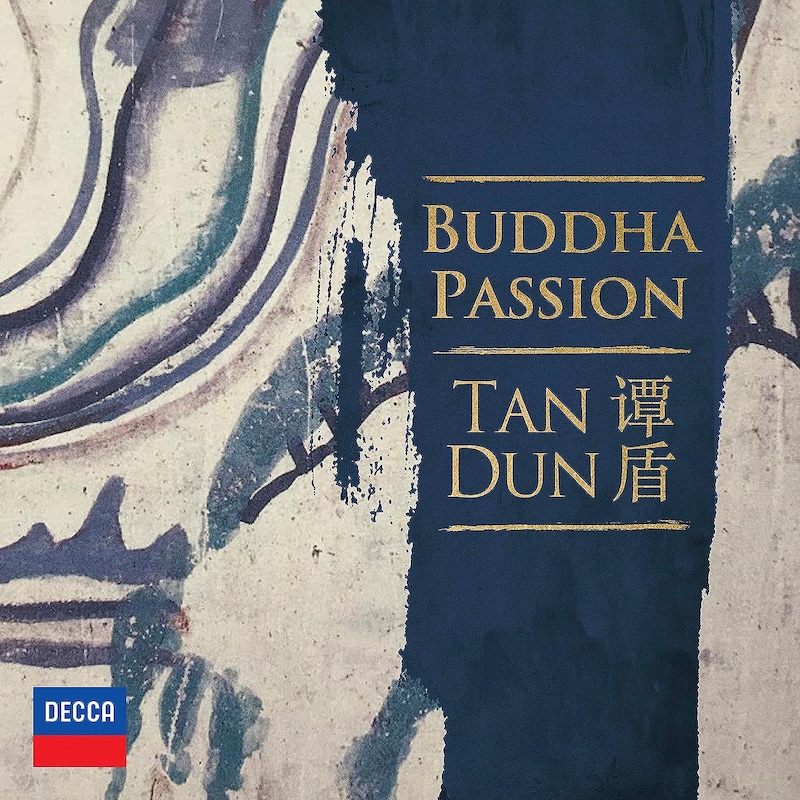
Tan Dun’s ‘Buddha Passion’ is a six-act musical odyssey inspired by the ancient cave murals of Dunhuang. Enveloped in a rich tapestry of Western and Chinese opera, classical music, and Asian folk traditions, Dun’s composition brings to life the vivid scenes depicted in the murals. The libretto, a mosaic of Chinese, Sanskrit, and English, guides listeners through the spiritual journey of a young prince as he evolves into Buddha, culminating in Nirvana. The International Choral Akademie and soloists, including the standout bass-baritone Shenyang, deliver a masterful performance, navigating diverse linguistic and musical styles. As David McConnell writes in his review, “’Buddha Passion’ is a transcendent experience that captivates and resonates long after the final note.” — Tal Agam
Walking in the Dark – Julia Bullock
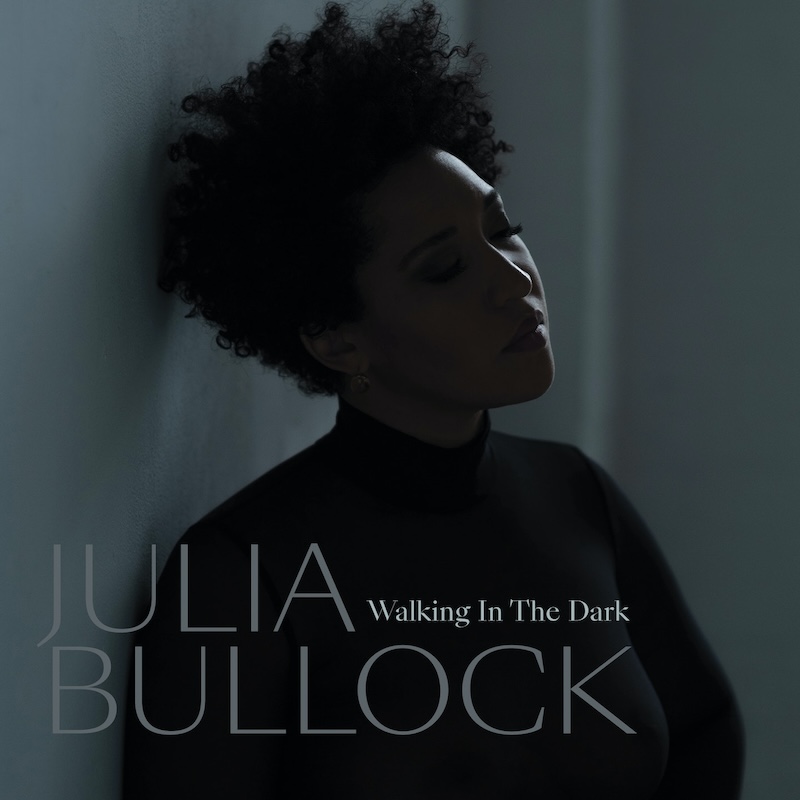
A latecomer on the heels of 2022, I was quite intrigued when I saw the track listing of this disc—with composers ranging from Samuel Barber to John Adams, I wondered whether Bullock could deliver on the challenge of performing all the works (on a debut album, nonetheless) in equally convincing fashion.
Deliver she has. Barber’s Knoxville: Summer of 1915 was filled with as much narrative, poignant nostalgia as Adam’s Memorial de Tlatelolco was imbued with impassioned fury. And just because Bullock is an opera singer doesn’t mean that she doesn’t nail cross-genre works. She gives heart and soul in her rendition of the spiritual, City of Heaven; the level of introspection in her nuanced performance of Oscar Brown Jr.’s Brown Baby is deeply moving.
The essence of an artist isn’t about technical prowess or versatility, for that matter—it’s about the level of care and devotion conveyed to the listener. Bullock is one of those rare musicians who can take an audience to an entirely different plane spiritually, psychologically, and philosophically.
With her astounding musicianship, her effort might well remain at the top of my list for years to come.
— Azusa Ueno

Albums included with an Apple Music subscription:
Latest Classical Music Posts
- Review: “Four Hands” – Alexandre Tharaud
- Review: Chopin – Études – Yunchan Lim
- Review: Britten – Violin Concerto, Chamber Works – Isabelle Faust
- Review: “Mozart, You Drive Me Crazy!” – Golda Schultz, Soprano
- Review: Schumann – Complete Symphonies – Dresdner Philharmonie, Janowski
- Review: Mozart – The Sonata Project, Salzburg – Yundi, Piano

